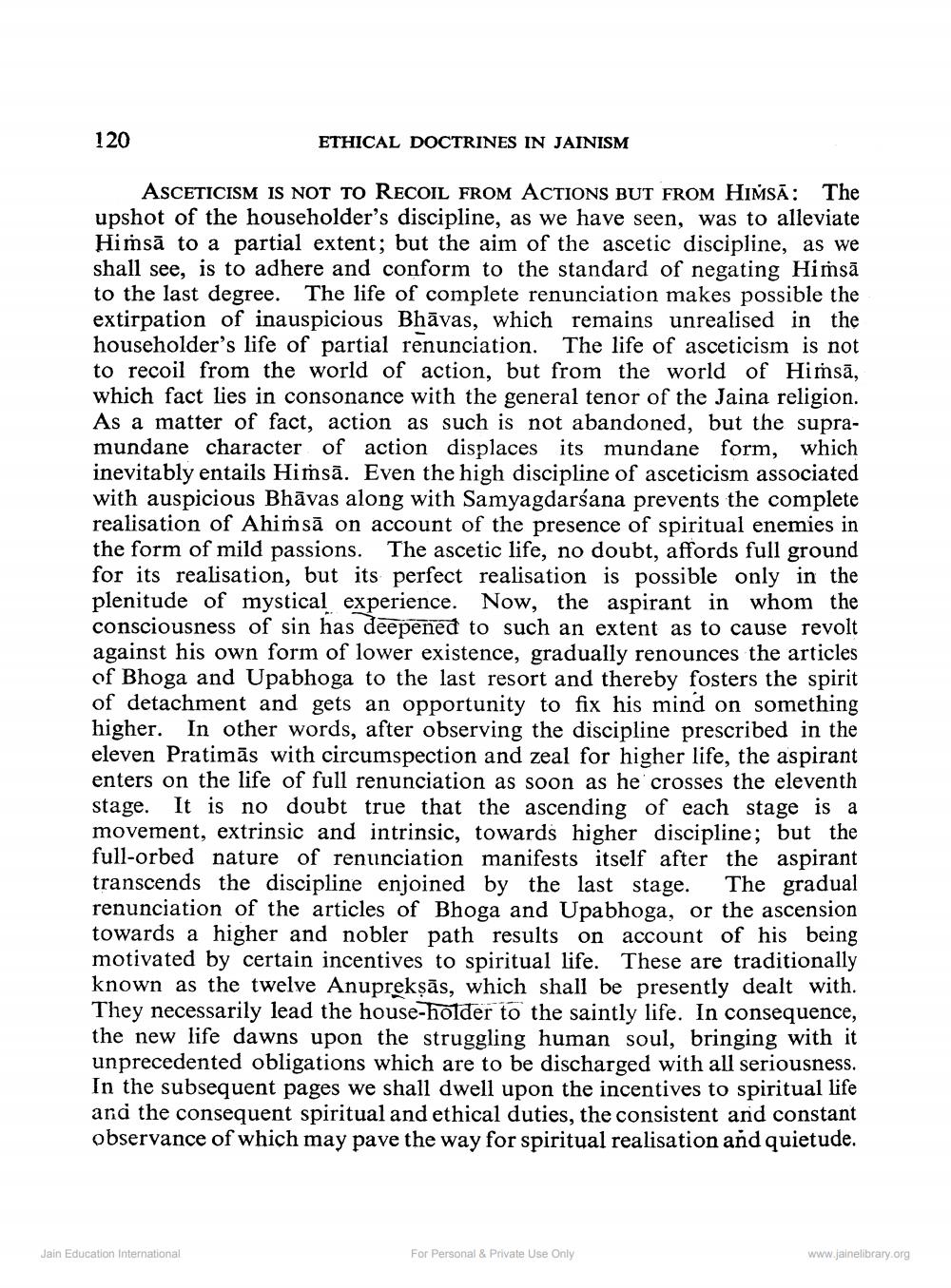________________
120
ETHICAL DOCTRINES IN JAINISM
ASCETICISM IS NOT TO RECOIL FROM ACTIONS BUT FROM HIMSĀ: The upshot of the householder's discipline, as we have seen, was to alleviate Himsā to a partial extent; but the aim of the ascetic discipline, as we shall see, is to adhere and conform to the standard of negating Himsā to the last degree. The life of complete renunciation makes possible the extirpation of inauspicious Bhāvas, which remains unrealised in the householder's life of partial renunciation. The life of asceticism is not to recoil from the world of action, but from the world of Himsā, which fact lies in consonance with the general tenor of the Jaina religion. As a matter of fact, action as such is not abandoned, but the supramundane character of action displaces its mundane form, which inevitably entails Himsā. Even the high discipline of asceticism associated with auspicious Bhāvas along with Samyagdarśana prevents the complete realisation of Ahimsā on account of the presence of spiritual enemies in the form of mild passions. The ascetic life, no doubt, affords full ground for its realisation, but its perfect realisation is possible only in the plenitude of mystical experience. Now, the aspirant in whom the consciousness of sin has deepened to such an extent as to cause revolt against his own form of lower existence, gradually renounces the articles of Bhoga and Upabhoga to the last resort and thereby fosters the spirit of detachment and gets an opportunity to fix his mind on something higher. In other words, after observing the discipline prescribed in the eleven Pratimās with circumspection and zeal for higher life, the aspirant enters on the life of full renunciation as soon as he crosses the eleventh stage. It is no doubt true that the ascending of each stage is a movement, extrinsic and intrinsic, towards higher discipline; but the full-orbed nature of renunciation manifests itself after the aspirant transcends the discipline enjoined by the last stage. The gradual renunciation of the articles of Bhoga and Upabhoga, or the ascension towards a higher and nobler path results on account of his being motivated by certain incentives to spiritual life. These are traditionally known as the twelve Anupreksās, which shall be presently dealt with. They necessarily lead the house-holder to the saintly life. In consequence, the new life dawns upon the struggling human soul, bringing with it unprecedented obligations which are to be discharged with all seriousness. In the subsequent pages we shall dwell upon the incentives to spiritual life and the consequent spiritual and ethical duties, the consistent and constant observance of which may pave the way for spiritual realisation and quietude.
Jain Education International
For Personal & Private Use Only
www.jainelibrary.org




